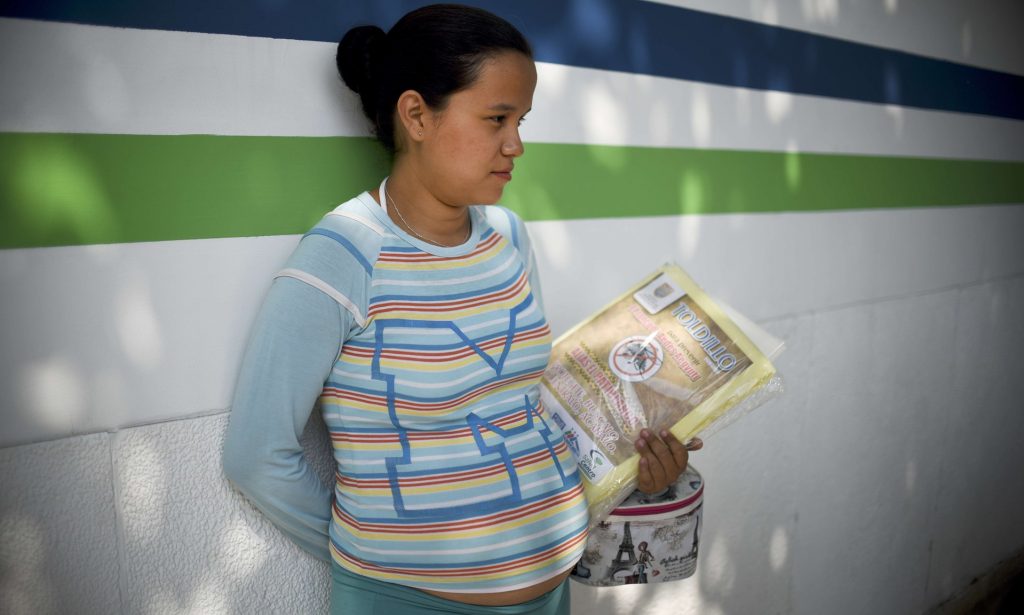
Photograph: Luis Robayo/AFP/Getty Images
Colombia has declared an end to its Zika epidemic with the spread of the virus levelling off in the country after infecting nearly 100,000 people – even as it continues to sweep through other areas of Latin America, and is keeping some athletes away from the Olympic Games in Brazil.
“Colombia is the first country in the Americas to declare a close to the epidemic,” said Fernando Ruíz, the deputy health minister.
Since September 2015, when the first cases of the virus were detected in Colombia, more than 99,721 people have been infected by the disease that can cause birth defects in foetuses and cause debilitating conditions in adults, according to Ruíz.
But health officials have registered a drop in the number of infections to 600 new cases a week from a peak of more than 6,000 cases a week in February.
Ruíz said the numbers signalled that the epidemic had given way to an endemic phase of the disease, in which it continues to be present but spreads much more slowly.
Zika on its own causes mild fever, rash and red eyes but has been found to be linked to microcephaly, a birth defect marked by small head size, and Guillain-Barré syndrome, which causes temporary paralysis in adults.
“Obviously the virus continues circulating but the epidemic phase has ended,” said Ruíz.
He predicted a spike of cases of in September and October, when pregnant women infected during the peak of the epidemic are due to give birth.
Colombia has closely monitored 17,730 pregnant women believed to have been infected with Zika. Of those 12,587 have given birth and health officials have confirmed 21 cases of Zika-related microcephaly among the newborns. One hundred and sixty other cases are still under study.
The Colombian government originally projected it could see some 500-600 cases of Zika-related microcephaly but later revised the projection downward and maintains an estimate of 100-300 cases.
With the end of the epidemic phase, Colombia has lifted the recommendation made at the peak of the epidemic that women postpone pregnancy.
The surge in birth defects has been much more noticeable in Brazil, the country hardest-hit by Zika, with almost 166,000 cases this year. Health officials in that country have confirmed more than 1,700 cases of microcephaly related to Zika infections in mothers.
However, nearly 90% of those birth defects have been concentrated in an area in the north-eastern tip of the country, leading researchers at Brazil’s health minister to suspect that other factors are in play in the rise in microcephaly cases, according to the journal Nature.
Nonetheless, some athletes have decided to stay away from the Olympics in Rio de Janeiro due to start in August because of the fear of contracting Zika.
Colombia also detected an uptick in cases of Guillain-Barré, a rare neurological syndrome that causes temporary paralysis in adults, which the World Health Organisation has said can be linked to Zika. Colombia has recorded 350 cases of Guillain-Barré related to the Zika virus.
The WHO estimates Zika could eventually affect as many as 4 million people as it spreads through Latin America and the Caribbean and could spread to parts of Africa and Asia.

